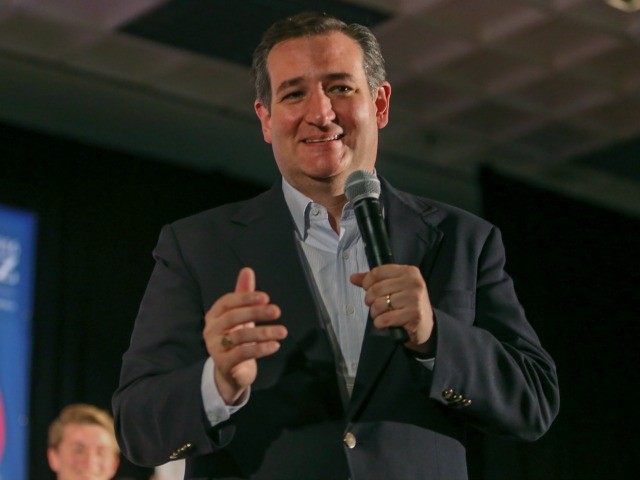A new poll from CBS News of the Republican primary race shows a tightening of the national race between GOP frontrunner Donald Trump and Texas Sen. Ted Cruz.
Trump still leads the race, with 42 percent support from Republicans nationally. Cruz is second with 29 percent. Ohio Gov. John Kasich is a distant third with 18 percent support.
Trump’s 13 point lead is down considerably, though, from the 20 point margin he enjoyed in March. His margin among men, very conservative voters, and those with incomes over $50,000 has narrowed. In a hypothetical match-up between Trump and Cruz, with Kasich out of the race, Trump still leads Cruz by 10 points, 48-38.
The most recent Reuters tracking poll sees a similar narrowing of the race. Trump leads Cruz by 6 points among Republicans nationwide, 41-36 percent. One month ago, Trump led Cruz by 20 points. In the middle of March, Trump was nearing 50 percent support; a majority of Republicans across the country. In the first two weeks of April, however, his support has been clustered around the 40 percent level.
The tightening of the race in the Reuters poll is attributable to defections among Trump’s core supporters. Trump currently leads Cruz by 10 points among Republican men, one of his best demographics during the campaign. Throughout March, however, Trump led Cruz among men by 30 points or more.
Among Republican women, Trump leads Cruz by 3 points. Cruz’s support among women surged after March 15. Prior to that, Cruz’s support among Republican women was clustered around 20 percent in the Reuters poll. Today, he polls just above 30 percent. Trump’s support has fallen from the mid-40s to the mid-high 30s since then.
Among voters earning less than $50,000 a year, another core of Trump’s support, the GOP frontrunner leads Cruz by just 3 points now, 39-36. In March, Trump regularly drew more than 50 percent support from these voters and led Cruz, at one time, by 46 points among low-income Republicans.
Another bedrock of Trump’s support has been Republicans with a high-school education or less. Throughout March, Trump regularly received over 50 percent of their support and led Cruz by 30 points among these voters. Today, he gets 43 percent support from these voters and leads Cruz by just 8 points.
Trump still dominates among seniors, his most supportive age block. He has the support of 49 percent of Republicans aged 65 or older. He leads Ted Cruz among these voters by 21 points. In contrast, Cruz leads Trump by 13 points among voters younger than 35.
Looking through the CBS poll and Reuters tracking data, the tightening GOP race is due to a hardening of supporters behind both Trump and Cruz. There was a window, in mid-March, when Trump looked to be consolidating his support across all demographic groups of voters. In many, he was regularly enjoying support from more than a majority of voters.
Republican consolidation behind any one frontrunner seems long off today. As CBS notes from the poll:
Perhaps reflecting the heated state of the race, these Republican primary voters don’t see a single candidate as a party unifier. Each of the three candidates is viewed by a similar percentage as likely to bring the different factions of the Republican Party together.
The RNC had crafted the primary calendar to ensure a quick decision on a nominee. The delegate allocation process included a lot of “bonuses” to the frontrunner to allow him or her to consolidate support among Republicans. By receiving a large share of delegates than their share of the votes, the RNC intended a presumptive nominee to emerge long before its convention in Cleveland.
Like many of the best-laid-plans, that hasn’t happened. Over the past two weeks, the GOP national race has tightened and will likely be hard fought until the very end of the primaries on June 7th. An entirely new phase of the contest will open then, leading right through the July convention.
Mike Flynn is a delegate for Ted Cruz in Illinois Congressional District 18.

COMMENTS
Please let us know if you're having issues with commenting.